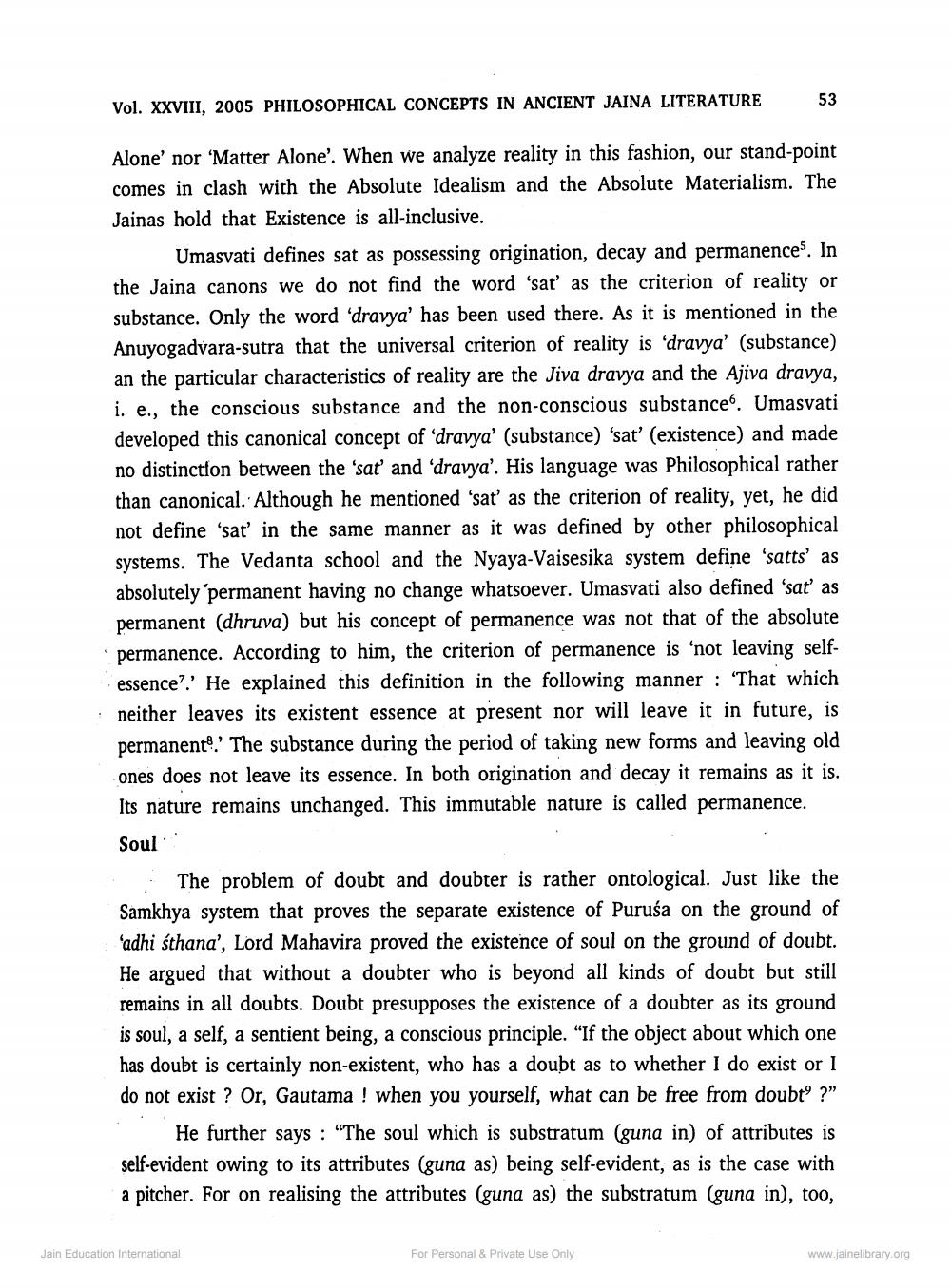________________
Vol. XXVIII, 2005 PHILOSOPHICAL CONCEPTS IN ANCIENT JAINA LITERATURE
53
Alone' nor 'Matter Alone'. When we analyze reality in this fashion, our stand-point comes in clash with the Absolute Idealism and the Absolute Materialism. The Jainas hold that Existence is all-inclusive.
Umasvati defines sat as possessing origination, decay and permanences. In the Jaina canons we do not find the word 'sat' as the criterion of reality or substance. Only the word 'dravya' has been used there. As it is mentioned in the Anuyogadvara-sutra that the universal criterion of reality is 'dravya' (substance) an the particular characteristics of reality are the Jiva dravya and the Ajiva dravya, i. e., the conscious substance and the non-conscious substance Umasvati developed this canonical concept of 'dravya' (substance) 'sat' (existence) and made no distinction between the 'sat' and 'dravya'. His language was Philosophical rather than canonical. Although he mentioned 'sat' as the criterion of reality, yet, he did not define 'sat' in the same manner as it was defined by other philosophical systems. The Vedanta school and the Nyaya-Vaisesika system define 'satts' as absolutely permanent having no change whatsoever. Umasvati also defined 'sat as permanent (dhruva) but his concept of permanence was not that of the absolute permanence. According to him, the criterion of permanence is 'not leaving selfessence?' He explained this definition in the following manner : 'That which neither leaves its existent essence at present nor will leave it in future, is permanent. The substance during the period of taking new forms and leaving old ones does not leave its essence. In both origination and decay it remains as it is. Its nature remains unchanged. This immutable nature is called permanence.
Soul
. The problem of doubt and doubter is rather ontological. Just like the Samkhya system that proves the separate existence of Puruśa on the ground of adhi śthana'. Lord Mahavira proved the existence of soul on the ground of doubt. He argued that without a doubter who is beyond all kinds of doubt but still remains in all doubts. Doubt presupposes the existence of a doubter as its ground is soul, a self, a sentient being, a conscious principle. “If the object about which one has doubt is certainly non-existent, who has a doubt as to whether I do exist or I do not exist ? Or, Gautama ! when you yourself, what can be free from doubto ?”
He further says : "The soul which is substratum (guna in) of attributes is self-evident owing to its attributes (guna as) being self-evident, as is the case with a pitcher. For on realising the attributes (guna as) the substratum (guna in), too,
Jain Education International
For Personal & Private Use Only
www.jainelibrary.org




